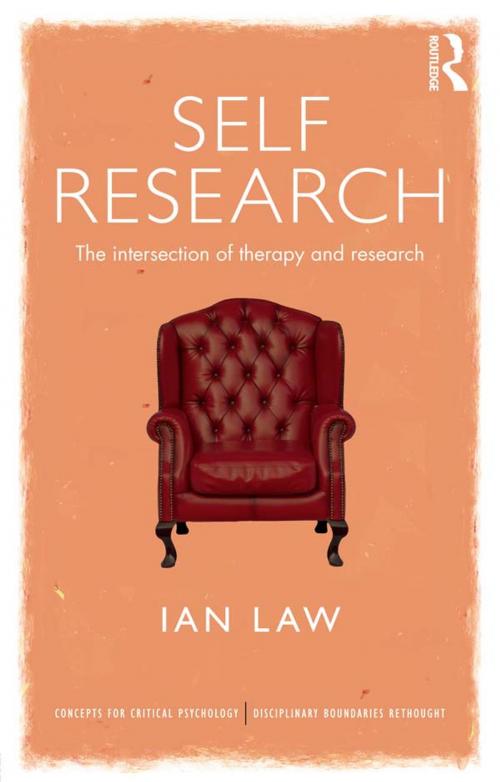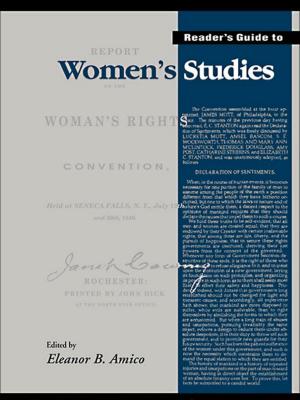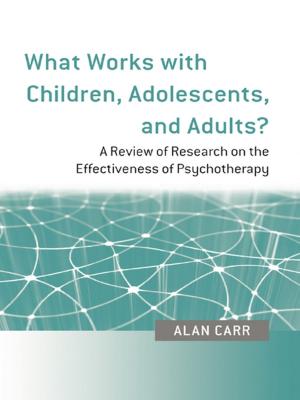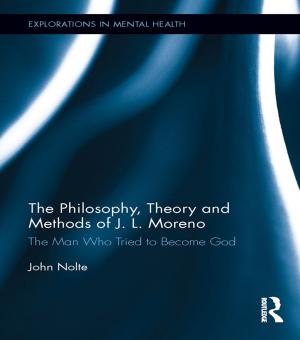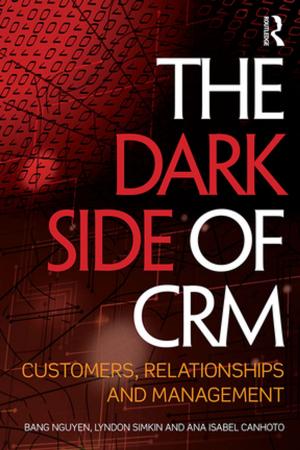| Author: | Ian Law | ISBN: | 9781317935261 |
| Publisher: | Taylor and Francis | Publication: | January 3, 2014 |
| Imprint: | Routledge | Language: | English |
| Author: | Ian Law |
| ISBN: | 9781317935261 |
| Publisher: | Taylor and Francis |
| Publication: | January 3, 2014 |
| Imprint: | Routledge |
| Language: | English |
‘Self research’ is both a therapeutic and a research endeavour that enables the subject of the research to interpret and validate their own data. In Self Research, Ian Law outlines and draws together the theoretical, institutional and practice elements of this work, and offers illustrative examples of how different elements of the methodology can be applied in practice. He proposes a methodology for the practice of self research that is based on an epistemological approach, thereby closing the interpretative gap between the researcher and the researched.
Engaging in therapeutic work with those who experience their sense of self as problematic can be transformative in two key respects: it enables them to produce a sense of self which acknowledges that an understanding of one’s self is discursively produced, and it helps locate that sense of self within its historical, political and social context. By setting out the theoretical underpinnings of the process across a range of different contexts, Law develops a methodology for doing ‘talk therapy’, and researching the self that are one and the same.
This methodology allows those who are both the subject and object of their own research to have the authority to determine its meaning, relevance and validity. The book will be essential for advanced students of counselling, along with practicing therapists in psychotherapy across different schools of practice.
‘Self research’ is both a therapeutic and a research endeavour that enables the subject of the research to interpret and validate their own data. In Self Research, Ian Law outlines and draws together the theoretical, institutional and practice elements of this work, and offers illustrative examples of how different elements of the methodology can be applied in practice. He proposes a methodology for the practice of self research that is based on an epistemological approach, thereby closing the interpretative gap between the researcher and the researched.
Engaging in therapeutic work with those who experience their sense of self as problematic can be transformative in two key respects: it enables them to produce a sense of self which acknowledges that an understanding of one’s self is discursively produced, and it helps locate that sense of self within its historical, political and social context. By setting out the theoretical underpinnings of the process across a range of different contexts, Law develops a methodology for doing ‘talk therapy’, and researching the self that are one and the same.
This methodology allows those who are both the subject and object of their own research to have the authority to determine its meaning, relevance and validity. The book will be essential for advanced students of counselling, along with practicing therapists in psychotherapy across different schools of practice.
